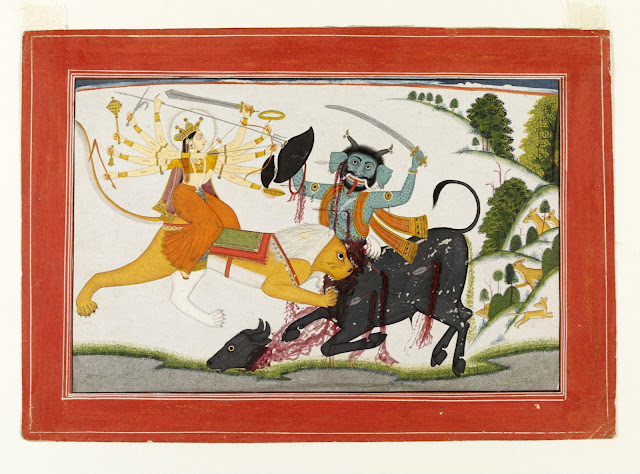Shakti's Authority in India - Two Traditions Show a Path of Dialogue

Durga Fighting Mahishasura, Nurpur Shaili ca 1760 (courtesy Victoria and Albert Museum ) Ever so often there is so much noise about the power of the Divine Feminine, the Mother Goddess. Some generated veneration, while others generated debate and controversy. In the midst of all this has been lost the celebration of the Shakti, the Cosmic Force that drives the entire cosmos. That she is the progenitor of everything is perhaps why Shakti was visualised as The Mother, the Jagat Janani, the Jagat Amba among the Hindus. As the great revolutionary and thinker Sri Aurobindo had written in his pamphlet Bhawani Mandir : The Shakti of war, the Shakti of wealth, the Shakti of Science are tenfold more mighty and colossal, a hundredfold more fierce, rapid and busy in their activity, a thousandfold more prolific in resources, weapons and instruments than ever before in recorded history. Everywhere the Mother is at work; from Her mighty and shaping hands enormous forms of Rakshasas, Asuras, De...
